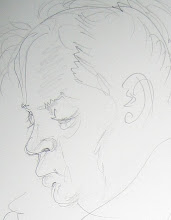Professor Karpov Lecture on the Fallacies of Studying History
On Planet Zudar in the Year 10608 AE (After E-Arth)
An Original Tale by Bill Longworth, Oshawa, Canada
First Public Reading February 20, 2008
“Hey Minsky…came across this story of the primitive E-Arth culture in the Milky Way Galaxy 8600 years ago. Apparently many humans there were keen scholars in looking backwards in time through the study of what they called History. Can you imagine?”
“History, Professor Karpov, Was that the story of man? And was there a parallel story about woman…like Herstory?”
“Well no, I think they were just interested in his story. But it all had to do with spending a lot of time and energy in looking backwards in time and writing stories about it. Many of the stories even went back before their written language and so the stories were told over and over and over from generation to generation. Of course they got changed every time they were told. And then schools would test their students on their knowledge of the latest accounts of his story.”
“No wonder they were a backward civilization, Professor Karpov. Any society that keeps looking over its shoulder at the past is sure to run into a brick wall in moving forward. They would always be looking backwards to find answers to new problems that had never arisen before. I guess they were not visionaries like our civilization. Why would they place such importance on the past, Professor?”
“Well they said, Minsky, that if they knew the past, they would learn from it and not repeat past mistakes. If they studied wars, genocides, ruthless leaders, social injustices and so on, the lessons learned would insure that the same mistakes did not happen again. They insisted that the lessons were important to make their planet a better place. They believed that the study of wars, for example, would lead to a better system of conflict resolution. That they would learn to allocate all of their war budgets on things like medical research, providing universal education and health care, equal opportunity and reasonable living standards for people throughout E-Arth. They said the study of History would help them to eliminate war and famine.”
“Well did it do any of these things, Professor?”
“No, it didn’t do any of these things. Maybe even made things worse!”
“So you’re postulating, Professor Karpov, that History often turns out like harboring the irritation of a toothache that often festers into never-ending aggression, disagreements, attempts to extract revenge, rebuttals, violence, genocide and war. It is not in remembering the sweetness of the smell of the rose…or the kind and thoughtful act. History by its very nature cannot foster unity and understanding.”
“A good observation, Minsky. History is merely fictionalized accounts of world events told from one point of view…that may or may not have happened…that may or may not be accurate. To their credit, though, they did preserve the wisdom of man in great books like the Christian’s Bible, the Moslem’s Koran, the Jew’s Tanakh, the Chinese’s Five Classics of Confucianism, the Hindu’s Śruti and many others. Unfortunately, unquestioning belief in the content of these great books often divided E-Arth peoples into warring factions. Amazingly, these books, which all contained the same basic wisdom of humans, also became a leading foundation of strife.”
“Well then, Professor Karpov, doesn’t the study of History imprison people to what they know as a civilization and then retard them from discovering new knowledge? “
“Well E-Arth did have a famous philosopher by the name of Andy Warhol** who said everyone will have 15 minutes of fame, which implied the fleeting nature of the importance of anyone and anything. In that statement, Minsky, this great thinker was pointing out the paramount importance of the immediate past, the present, and the focus of this most recent state of knowledge and experience on incremental improvements to the near future, which is what we believe on our Planet Zudar, the most advanced civilization ever in the universe.”
“I guess that explains why, Professor Karpov, we do not study the History of our peoples--only scientific investigations and knowledge about the natural world and about those things that can be proven about the development of our world and of our species. Rather than focusing hatred on the past through studying it ad nauseum, we focus all of our intellect on solving problems for our future.”
“For sure, Minsky. The only unlimited resource in the world is the potential of the mind. Change accelerates as increased knowledge exposes more frontiers to the genius of man. The only limit to the future is the number of beings willing to adventure forward, compared to those who revel in the past, preserving the status quo through their study of History. Our world is rapidly changing and a strong focus on History is a force for retention of the past. If we focused on the past, we wouldn’t be the advanced and idyllic civilization we are today.”
“You’ve convinced me, Professor Karpov. Historians are Luddites, retarding progress to a better place.”
“Yes, my son, the only value of History is as a source of inspiration for creative fictional writing. History has as much truth and reliability as science fiction--but science fiction at least focuses vision on the world ahead.”
AUTHOR'S COMMENT
** The reference to artist Andy Warhol as a famous philosopher of the time is a tongue-in-cheek comment about historical references...not the author's naivety about his work.
INTERESTING READING ON THIS TOPIC
Theory vs. philosophy in history
The Whig Interpretation of History
Thinking Historically and Teaching History
The New Historicism
Logical Fallacies in History
Why Study History?
A Sense of History---Some Components!
Mike Wallace 1958 Interview---Are there extraterrestrial beings?
Canada: Innovate or Stagnate...David Crane, Toronto Star, May 1, 2009
YOUR TURN---SUBMIT YOUR REASONS PRO OR CON IN RESPECT OF STUDYING HISTORY
Saturday, February 16, 2008
The Fallacy of Studying History ©
Subscribe to:
Post Comments (Atom)



No comments:
Post a Comment